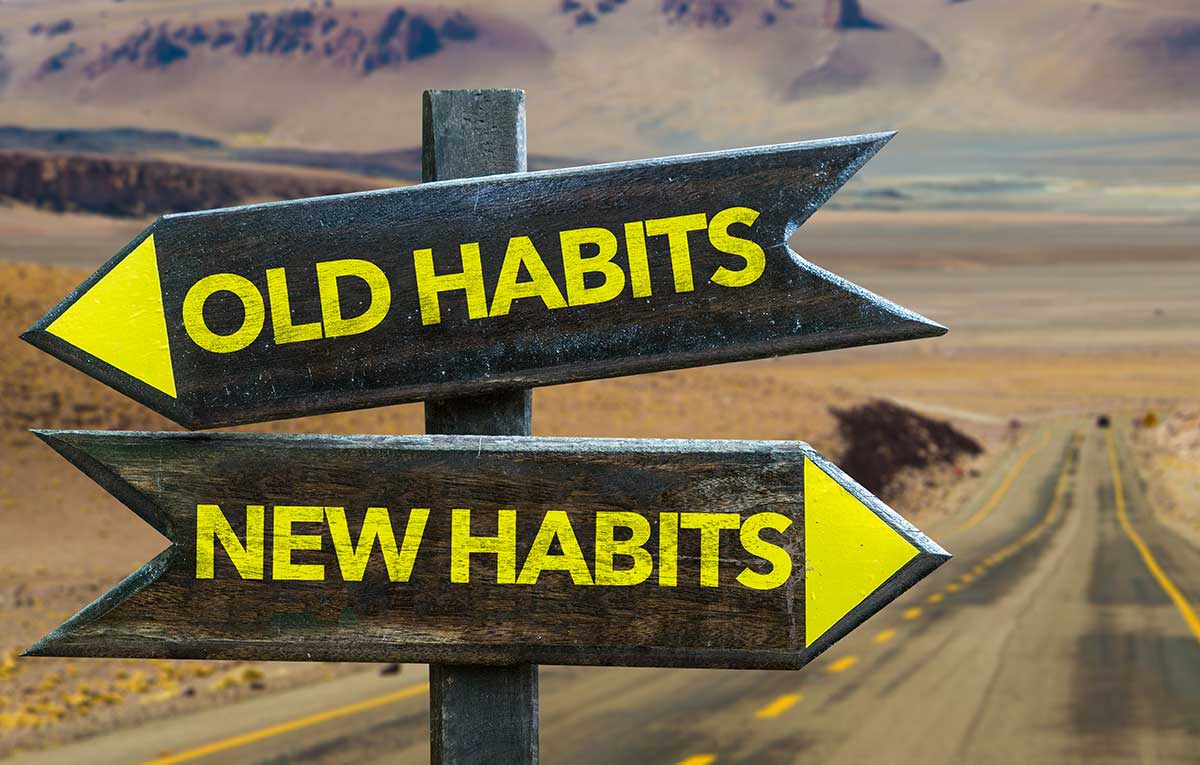Have you ever looked at your daily routine and wondered why the sequence is always the same?
Some need a cup of coffee before they attack the day. Others are showered and dressed before facing the world. Either way, the morning routine, along with every other part of the day isn’t shaped by personality type, it’s shaped by habit.
What is a habit?
Habits are patterns of behaviour formed over time through repetitive behaviour or conditioning. They stem from a natural response to an emotional trigger or belief system.
Once established, these patterns of behaviour run automatically in the subconscious and occur without any conscious input at all.
If you think that habits only include negative behaviour such as swearing, after-work drinks and smoking, you’d be wrong. Habits extend into every area of life and form the majority of who we are as people.
Read on as I discuss some more examples of habits and the potential belief system that may have led to them.
- Procrastination
If you struggle to focus or find yourself mindlessly scrolling social media every time you sit down to work, you’re in the habit of procrastination.
Procrastination can severely impact results in every area of life so it’s important to identify the cause to increase productivity.
Common false belief: Fear of failure.
- Alcohol consumption
Drinking patterns are nothing more than habit and even the most addicted can change those habits by addressing the underlying emotional connection to alcohol.
Often people start drinking heavily as a form of stress relief or to block out emotional pain, but this isn’t why alcohol consumption continues. Once the trigger is removed, alcohol consumption becomes a subconscious action that continues without any conscious involvement at all.
Common false belief: Alcohol increases confidence or reduces stress.
- Smoking
Have you ever wondered why some people give up smoking the first time they try but others quit quitting over and over again? The answer lies in their habit.
If a smoker doesn’t address the belief attached to why they started smoking, trying to give up will almost always be futile. Reasons to start smoking aren’t because it tastes nice or is sociable, people start smoking because they think it makes them look cool or they believe it cheers them up. Take away those triggers and you’re left with a habit which can be broken.
Common false belief: Smoking impresses the people around you.
- Stuttering
While a stutter may originally be caused by a neurological condition or emotional trauma, the way in which people stutter can become a habit which sees the condition continue long after the original cause or trigger has been removed.
Common false belief: You’ve always stuttered so you always will.
- Feeling nervous
You can be the most confident person in the room but as soon as it comes to an interview or public speaking situation, you go to pieces. Feeling nervous is nothing more than a habit formed over years of not coping in similar situations. Along with the familiar feeling of butterflies, biting nails and sweating are also habits associated with nerves.
Common false belief: You made a fool of yourself when you gave a speech once so you always will.
- Compulsive shopping
Shopping isn’t always a necessity, and some overspend on a regular basis purely out of habit. This habit may have started from pride after someone commented on new clothes or a person may attach self-worth to their new purchases. Either way, when you look at the reason for endless shopping sprees, it’s rarely about the items being purchased and more about an emotional need that was being met when the habit began.
Common false belief: The labels you wear define your worth
- Your feelings
Have you ever found yourself jealous of a partner’s friendships? Or the opposite, knowing that a partner is testing the boundaries yet just accepted it?
Contrary to what people may tell you, these are both examples of relational habits.
If an ex-partner has cheated on you or treated you poorly, if those feelings haven’t been addressed, those triggers will continue to surface.
Regardless of the reason, the feelings in your current relationship stem from the habit of responding with those same feelings in the past. Your brain no longer assesses each situation on its own merits and decides how you should respond, it’s hard-wired to act the way it always has done.
Common false belief: You’ve been cheated on once before, it’s bound to happen again
- The way you approach challenges
Nobody manages to sail through life without challenges and how you approach them is all down to habit.
Whether you panic and get stressed or approach things calmly and methodically is all based on how you have previously responded to similar situations and your subconscious reaction.
Common false belief: If you got through a crisis by panicking before, the same method will work again.
Your habits shape your personality, your reality and will have a significant impact on every area of life.
The good news is you can break habits just as easily as you make them to create the life you want to live.
How does hypnotherapy and Neuro Linguistic Programming (NLP) help break bad habits?
Hypnotherapy and NLP addresses the false beliefs that lead to habits and reprograms the subconscious mind with new beliefs that lead to more positive habits.
For example, the traditional belief that smoking makes you look cool is replaced with the knowledge that it’s unhealthy and will lead to chronic illness.
If a partner cheated on you and you’ve taken that issue into a new relationship, this belief can be reframed in your subconscious to overcome jealousy and introduce new ways of responding.
Once you start to address unhealthy belief systems, your actions will change accordingly thus changing the habit.
To find out more about how hypnotherapy and NLP can help you change habits, contact Jade on 0477 650 000 today.


